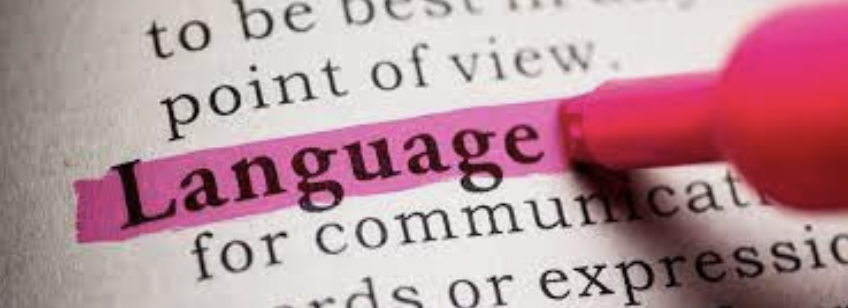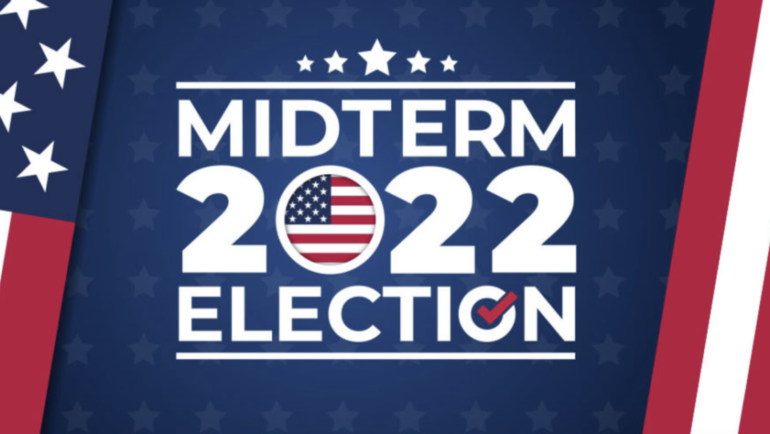
The Importance of understanding Anti-Democratic Language
By Loralee Bergdall
In 2022, the United States saw a dramatic increase in harmful anti-democracy movements, growing larger since the election of Donald Trump in 2016. For the past six years, the GOP ramped up their divisive language. Not commonly acknowledged, the rhetoric of political movements is a make or break in democratic elections. The more we understand the language playbook of the anti-democratic regimes, the better chance democracy has.
Many of the most dangerous fascist regimes in the world have understood the deep importance of language in gaining power. Benito Mussolini perpetuated the idea of Risorgimento, or Rise Again, the possibility of another Roman empire established through national unification. Mussolini understood the need for Italian unification and used language to do so. It was no accident that Adolf Hitler, used similar tactics to radicalize an entire country.
The most prominent method of radicalization and normalization of extreme ideology is an imposition of “aloneness” in a population that otherwise feels as if they belong to some type of community[1]. All radical groups capitalize on this tactic. It plays into the human desire to “fit in”, and to establish meaningful relationships with those around them. Such groups sequester targets from shared identities and experiences, such as religious affiliation or non-political identity. In stripping them of their identity, it is easy to degrade and reshape a militant and dedicated new identity. Within these groups, dehumanization is rampant; vocabulary consisting of slurs, derogatory signage, objectifying language. This language strategically categorizes ‘others’ while uniting their aggressors. For example, former President Donald Trump legitimized harmful language about many vulnerable groups of people, including, but not limited to: the disabled, Mexicans, Salvadorans, Chinese, LGBTQ+, underage girls, liberal reporters, Jewish, POC, impoverished, and any other group that interferes with his idea of fascism[2]. These labels, while seemingly minor, have an immense impact on creating a “us” versus “them” narrative. Groups such as incels for example, use similar tactics, asserting sexist and degradative portrayals of women, which has led to increasingly deadly consequences[3]
This schema only strengthens the hatred from the “us” group. In fact, echo chambers of hateful rhetoric in social media acts as a direct pipeline towards extremism. Researchers have been monitoring the increasing pace of social identity being geared towards exclusion as a tool for monolithic thinking[4]. Imagine, a group of emboldened people who feel slighted by society for including others in their spaces, connecting with others who feel the same way, and peddle negative stereotypes about ‘outsiders’. It’s easy to see how narratives of hate are continued, amplified, and evolved.
What can we do about this rapid descent in anti-democratic rhetoric and regimes? The only way to counter such regressive forces is with vigorous opposition. If the side of anti-democracy feeds off of isolation and fear, we must create and harbor communities of strength and resolve for truth. We must form factions of fearless leaders willing to call out the weakness in anti-democracy. Totalitarianism is created by weak, fearful, and avoidant leaders, who are leading their followers to their own demise. They are leaders who will stop at nothing to destroy opposition, which is why opposition must be swift and fierce. No more tiptoeing around hate speech, as we all know speech turns to action. Inaction leads to more intolerance. We need to be fervent counter forces to elected leaders, figure heads, lobbyists, and organizations seeking to undermine free and fair elections, autonomy, and personal freedoms. Evidence is on the side of progress; breaking echo chambers and exposing fear tactics works[5]. Creating a more inclusive, decisive, and centralized “us” acts as a stark reminder that othering is unsuccessful. It’s important that we openly maintain and encourage healthy acts of civic nationalism–turning out to vote, supporting our candidates, and engaging in public discourse on issues. It’s important to exercise open dialogue and honesty, engaging with those who harbor extremist views is an effective tool to de-radicalize. Expressing feelings of healthy nationalism–celebrating what our country does right, while also calling out the wrongs. It’s important that we scrutinize our politicians and hold them to their word. As is in the case of Kari Lake, who, when asked if she would concede the election if she lost, simply stated, “I will win the election, and I will accept those results”. Arizonians have rejected her anti-democratic narrative. In fact, the prevention of the red wave proves most Americans reject the GOP’s regressive ideology. The biggest difference between the keepers of democracy and those who seek to undermine it, is the keeper’s bravery to fiercely oppose threats to our democratic autonomy. By holding a mirror to the lies and deceit, we transform dangerous rhetoric, to babbling nonsense. Democracy is safe, only in the hands of vigorously brave keepers.
[1] Jackson, Sam. “A Schema of Right-Wing Extremism in the United States.” International Centre for Counter-Terrorism, 2019. http://www.jstor.org/stable/resrep19625
[2] Gounari, Panayota. “Authoritarianism, Discourse and Social Media: Trump as the ‘American Agitator.’” In Critical Theory and Authoritarian Populism, edited by Jeremiah Morelock, 9:207–28. University of Westminster Press, 2018. https://doi.org/10.2307/j.ctv9hvtcf.13
.
[3] Kelly, Megan, Alex DiBranco, and Julia R. DeCook. “Increasing Rhetoric of Dehumanization.” Misogynist Incels and Male Supremacism: Overview and Recommendations for Addressing the Threat of Male Supremacist Violence. New America, 2021. http://www.jstor.org/stable/resrep35139.7
[4] Greer, Chris, and Yvonne Jewkes. “Extremes of Otherness: Media Images of Social Exclusion.” Social Justice 32, no. 1 (99) (2005): 20–31. http://www.jstor.org/stable/29768287
[5] KHOSRAVINIK, MAJID. “Right Wing Populism in the West: Social Media Discourse and Echo Chambers.” Insight Turkey 19, no. 3 (2017): 53–68. http://www.jstor.org/stable/26300530


